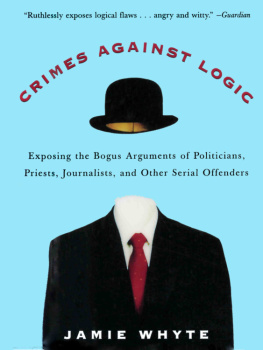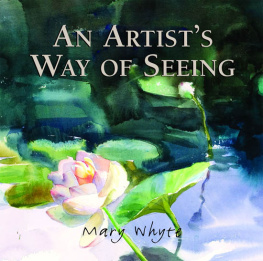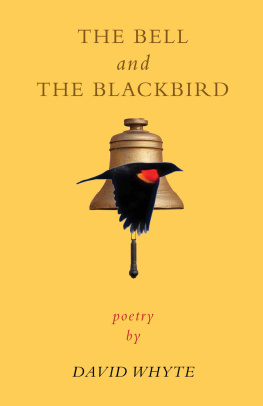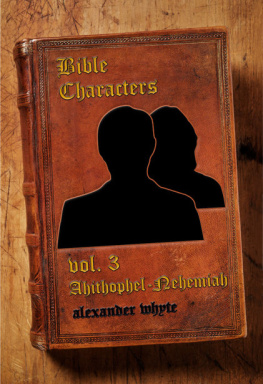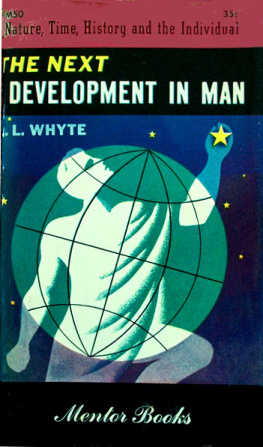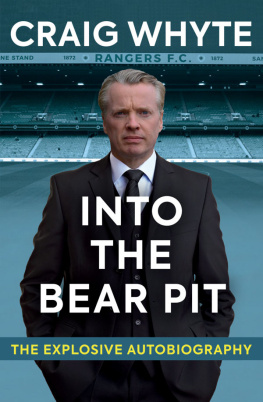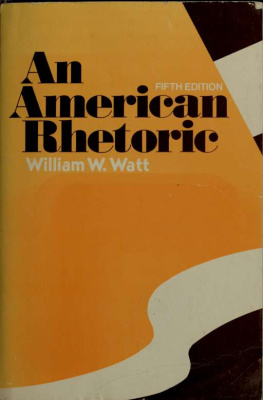Whets a long knife of ultra-rationalism on the cold stone of logic, and death by a thousand cuts is inflicted on prejudice, statistics, morality, religion, weasel words, and seductive sirens such as politicians, New Agers, advertising executives, and, of course, journalists who expect you to be persuaded by anything other than facts.
An incisive philosopher.
IN the daily battle for our hearts and mindsnot to mention our hard-earned cashthe truth is usually the first casualty. Its time we learned how to see through the rhetoric, faulty reasoning, and misinformation that were subjected to from morning to night by talk-radio hosts, op-ed columnists, advertisers, self-help gurus, business thinkers, and, of course, politicians. And no one is better equipped to show us how than award-winning philosopher Jamie Whyte.
J AMIE W HYTE is a past lecturer of philosophy at Cambridge University and winner of Analysis journals prestigious prize for the best article by a philosopher undcr thirty. He lives in London.
1 The Right to Your Opinion
p. 1 K now your rights!
So we are advised by all sorts of well-meaners. When I was an undergraduate student, activists wanted me to know the rights that protected me against police harassment. Having dutifully learned them, I was disappointed never to encounter the expected harassment. Now I receive pamphlets telling me that I may have a right to various kinds of government assistance, including money. Alas, the result of inquiry is always the discovery that I dont qualify. As with cheap flights, conditions apply, and it seems that I am the citizens equivalent of someone who wants to fly to Sydney at Christmas.
My poor return from knowing my rights shouldnt put you off. Knowing your rights is usually useful and we could all do better In a few years, when my newborn daughter has finally got herself a decent job, I plan legal action against her.
Learning your rights can also mean discovering that you do not really have rights you think you do. This can also be useful. Suppose, for example, that you thought you had a right to do to your body whatever you like, provided you injure no one else. Such a delusion could well land you in prison convicted of drug use or assault.
In this spirit, my purpose here is to stop you from believing in another right that you do not really have, namely, the right to your own opinions.
Perhaps you dont believe you have this right; then I am sorry for being presumptuous. But, you would be the first person I have met who doesnt believe it. The slogan You are entitled to your opinion is so often repeated that it is near impossible for the brain of a modern Westerner not to have absorbed it.
Like many other views that have at times enjoyed universal assent, however, it isnt true. You dont really have a right to your own opinions. And the idea that you do, besides being false, is forever being invoked when it would be irrelevant even if it were true.
The Irrelevant Right
p. 3 Before showing that this clich is false, lets first be clear that its common use in discussion or debate really does amount to a fallacy. It is often used preemptively, when an assertion is prefaced with the acknowledgment that Of course, you are entitled to your opinion, but... Yet its more basic use, which the above acknowledgment is intended to preempt, is defensive.
Jack has offered some opinionthat President Bush invaded Iraq to steal its oil, lets saywith which his friend Jill disagrees. Jill offers some reasons why Jacks opinion is wrong and after a few unsuccessful attempts at answering them, Jack petulantly retorts that he is entitled to his opinion.
The fallacy lies in Jacks assumption that this retort is somehow a satisfactory reply to Jills objections, while, in fact, it is completely irrelevant. Jack and Jill disagreed about Bushs motivation for invading Iraq, and Jill gave reasons to believe that Jack was mistaken. She did not claim that he had no right to this mistaken view. By pointing out that he is entitled to his view, Jack has simply changed the subject from the original topic, the reason Iraq was invaded, to a discussion of his rights. For all it contributes to the invasion question, he may as well have pointed out that whales are warm-blooded or that in Spain it rains mainly on the plains.
As with most of our fallacies, once seen, it is obvious. Here is a simple way of putting it. If the opinions to which we are entitled might nevertheless be false, the entitlement cannot properly be invoked to settle a dispute. It adds no new information on the original matter; it does nothing to show that the opinion in question is true.
p. 4 Interpreting the clich to exclude the possibility of falsitythat is, to mean that we are entitled to have all our opinions be truehas two problems. First, it is ridiculous. Second, it does not in fact make the entitlement to an opinion relevant in deciding who is correct in any dispute. If Jack has a right to his true opinion then presumably Jill has a right to hers too. But then, since Jack and Jill disagree, one of them must be suffering a rights violation; one of them has a false belief. So, even if we had the right to true beliefs, that would only show that it is a right that is violated all the time, on precisely those occasions when our opinions are in fact false. In any dispute, to know whose right to a true belief is being violated we would first need to work out whose belief is false. That is, we would need to settle the original disputein the case of Jack and Jill, about President Bushs reason for invading Iraq. And a diversion on the matter of rights gets no one any closer to answering that question.
So, even on the strongest, and utterly incredible, interpretation of our opinion entitlement, it is irrelevant to anything else we might be debating. Why then is insisting on ones right to an opinion such a popular argumentative ploy?
In part, it is encouraged by an ambiguity in the word entitlement. It has a political or legal interpretation, by which we are all entitled to any opinion we might have, however groundless. But it also has an epistemic interpretation, that is, one related to, or concerned with, truth or knowledge. You are entitled to an opinion, in this epistemic sense, only when you have good reasons for holding it: evidence, sound arguments, and so on. Far from being universal, this epistemic entitlement is the kind you p. 5 earn. It is like being entitled to boast, which depends on having done something worth boasting about.
So, the two senses of entitlement could not be further from each other. Yet it is too tempting to muddle them. The implied argument of the muddler runs as follows:
1. If someone is entitled to an opinion then her opinion is well-supported by evidence. (This is precisely what it means to be entitled to an opinion.)
2. I am entitled to my opinion (as is everyone in a democratic society).
3. Therefore, my opinion is well-supported by evidence.
This is a beautiful example of the fallacy of equivocation, i.e., slipping between different meanings of a word in an argument that would be valid only if the word were used with the same meaning throughout. (See the chapter .)

